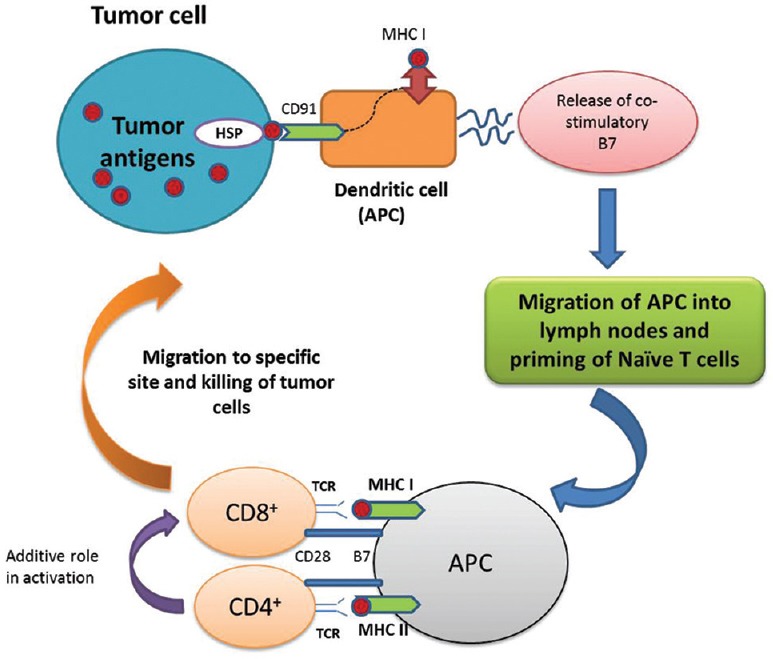Figure 2.

Role of heat shock proteins in cancer: Heat shock proteins (e.g., gp96) stimulating anticancer immunity. The interaction of gp96 with its specific receptors, such as CD91 on antigen presenting cells is followed by cross-presentation of antigens to major histocompatibility complex class I and increase in the release of co-stimulatory molecules such as B7. These dendritic cells subsequently migrate to the draining lymph nodes and prime antigen-specific naive T-cells. Those CD8+ T-cells (helped by CD4+ T-cells) exit from lymph into the tumor sites for lysis and clearance of tumors in an antigen specific manner
